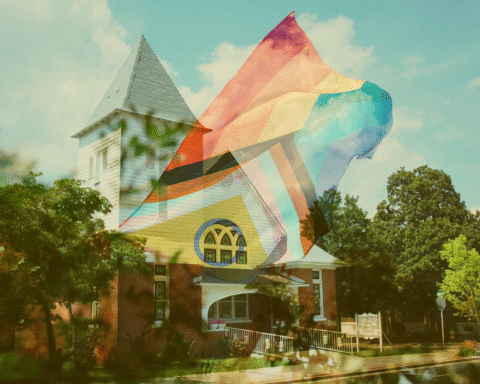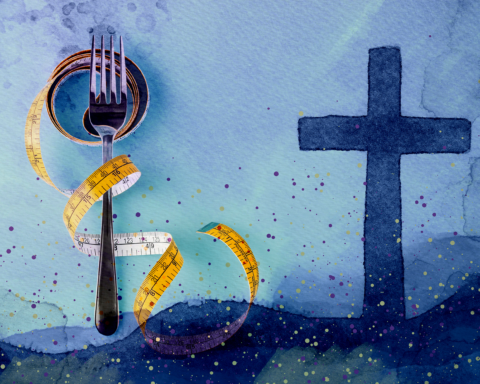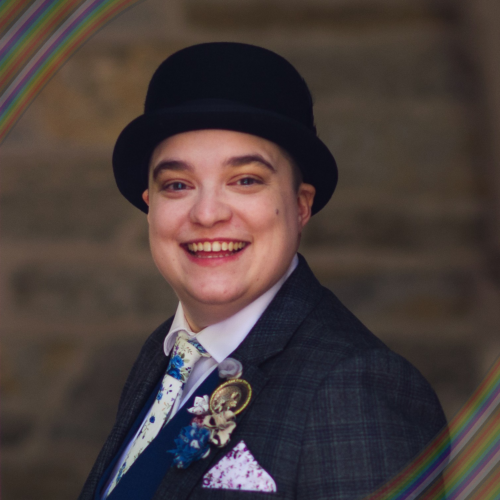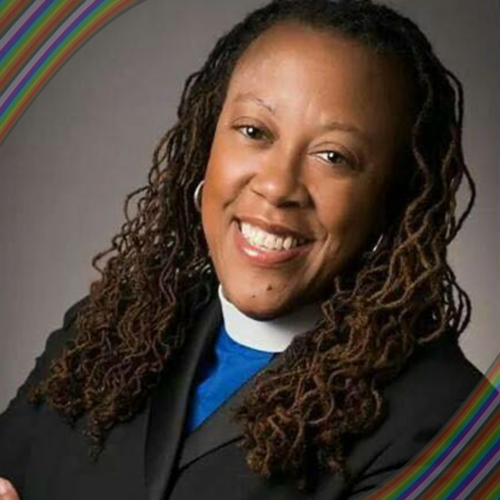John 4: 5-42
“I have a question about storytelling,” I said while preparing for a big meeting later in the week. I was at a workshop to help me focus for a presentation I had to give. As the leader nodded, I continued, “I know that storytelling is a compelling way to help people connect, and I have a really good story about a young, queer black student I worked with this summer. Do you think that’d be good one to tell?” The leader paused, her brow furrowed.
“I’d stay away from LGBTQ stuff,” she said. “We don’t want to pigeonhole you.”
“Okay,” I replied. “Should I avoid racial stuff, too?”
“No, that’s okay. They can see that you’re black. They can’t see that you’re queer.”
They can’t see that you’re queer.
As a queer black person, I often have to consider my existence in the world. How do people see me? What about me is immediately known? What about me is invisible unless I say something? What about me goes without saying? It is difficult to find answers to all these questions, especially when said answers change depending on circumstances. I may or may not look queer in a plain black t-shirt, but when I wear a rainbow button down, perhaps folks know. When I walk down the street with my wife, some folks think we’re best friends, some think we’re together, and some even guess that we’re queer but get our identities wrong (we’re both bisexual). Some people can pick me out without any clues whatsoever, while others make the wrong assumptions even when I’m walking around with “LGBTQ” on my shirt. And none of this even begins to touch what happens when people start making assumptions about my race.
This is part of what it means to be a queer person. So many people navigate both their sexual orientation and the ways that the world sees them through the lens of that sexual orientation. Do we play into the stereotypes of “what people like us” are supposed to look like? Do we have the right signifiers so that other queer people can spot us? Are people of our age/race/ability/background/etc. even seen as part of the community? Do we blend in (in any direction) enough to keep us safe in certain circumstances? Do we even want to blend in at all? These are just some of the questions we consider as we exist as queer people in the world (these are also some of the questions that trans people consider but, as I am not trans, I won’t speak for that part of the LGBTQ community).
What would it be like not to ask questions like these but rather to be seen fully, seen as we are without judgement?
The Samaritan woman helps us answer this in her encounter with Jesus. There are a few things known about each of them at the beginning of the passage. Jesus is Jewish and the woman is Samaritan. Jesus would like some water, and the woman knows this is a strange request. Jesus knows he has living water, and the woman knows he has no bucket. As their conversation continues, more information comes to light. This living water isn’t the kind that comes from a well, but the kind that becomes a spring of water gushing up to eternal life. It is the kind of water the woman would very much like to try. Jesus acknowledges that the woman has had five husbands in her life and is currently with someone who is not her husband. The woman acknowledges that Jesus is, at the very least, a prophet. She knows that the Messiah is coming. Jesus knows that it is him.
When the disciples, who were out buying food, show up to this scene, they are amazed at the conversation Jesus is having with this woman, but they don’t stop it. Instead, what we are left with is two people who see each other as they are, across questions and differences, without judging each other. Things that are obvious and things that may not be so obvious are known and appreciated by them both. When they part, there is transformation. The woman goes on to tell people about this amazing man she has met who has truly seen her, inside and out, while Jesus tells the disciples that there is more work to do and that he is ready for it. Energy. Enthusiasm. Joy. This is what can happen when people are truly seen.
Throughout Lent, we are asked to take time to reflect on God, on Jesus, on our faith, and on ourselves. For many queer and trans people, reflection isn’t a new exercise; it’s something that we do all the time to help us navigate who we are and how the world does/should see us. What’s important to remember, however, is that God knows who we are. As we ask questions, as we seek answers, as we change into the newest and best versions of ourselves, God is there. God has always been there, looking at us and seeing us for the people we have been, we are, we are becoming. Some may speak of a judgmental God, much like one would expect a Jewish man to judge a Samaritan woman somehow. They may speak of a God who desires secrecy, the kind of God that might shame a woman with five husbands. This is not the God we know. The God we know is the God who reminds us that we are beautifully and wonderfully made. The God we know is the one who breathed the breath of life into us and knows the hairs on our heads. The God we know is the God who meets us at the well, knowing what is obvious and not so obvious about us, and accepting all of it.
As we continue our Lenten journeys, let us take a moment to reflect with this God, the God whose reflection is all of us:
Take a look into a mirror or other reflective surface. Notice what you see. What does your face look like? Your head? Your body? Take all of it into consideration. If that’s overwhelming for any reason, close your eyes and instead notice how your body is working (your breath, your heartbeat, etc.). Say a short prayer, either out loud or silently, for your body.
Notice how you feel physically in your body. What feels tight? What feels relaxed? Don’t pressure yourself into liking or disliking any particular part of your body; instead, focus on how you feel inside. Whether it’s good or bad or neutral, all your feelings are valid. Say a short prayer, either out loud or silently, for your feelings.
Think about who you are. Who do you love? What do you like or dislike? What things about you make you proud or frustrated? What parts of your life hold special meaning to you? What hopes do you have for yourself? How do you wish to grow? As you consider these things, notice how they make you feel. It’s okay to feel whatever you feel. Say a short prayer, either out loud or silently, for who you are.
Take a deep breath and know that all that you see and know about yourself, God also knows. And God loves you for every single part of you.
Ashley DeTar Birt (she, her, hers) is the Pastoral Fellow for Youth and Families at Rutgers Presbyterian Church in New York, NY. A native Pittsburgher, she received her Masters of Divinity from Union Theological Seminary, an MA in Theater Arts from the University of Pittsburgh, and a BA in Creative Writing from Carnegie Mellon University. She has worked with youth groups in several Presbyterian Churches in Pennsylvania and New York, and also brings a background in music, theater, and LGBTQ advocacy. She also serves on the board of More Light Presbyterians.






Unbound Social